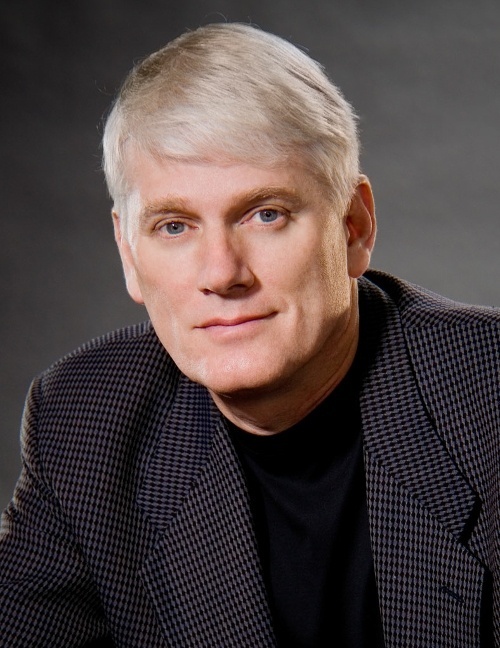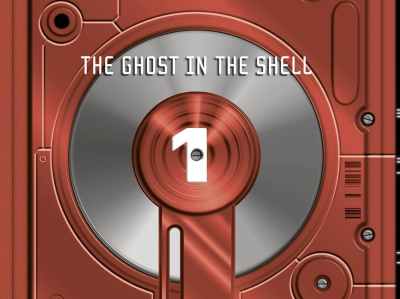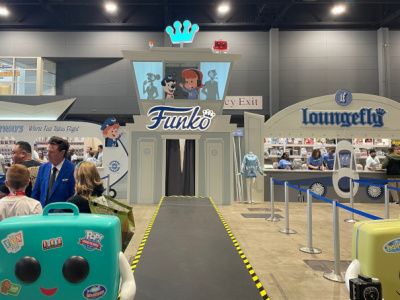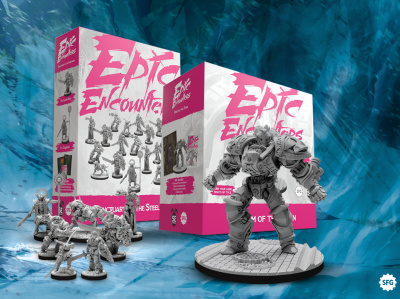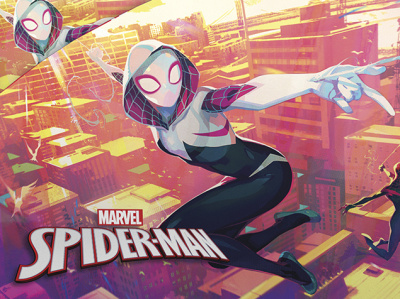ICv2 recently caught up with Dark Horse Comics founder and CEO Mike Richardson to get his reflections on 30 years in the comics industry. In Part 2, he looks at Dark Horse Comics today, answers the exit question, and looks ahead at where comics will be 30 years from now. In Part 1, he looked at how the business has changed over the past 30 years.
How many outlets do you think carry Dark Horse products in the U.S. and Canada these days?
I know that Dark Horse publications are in over a hundred countries. I didn’t know there were a hundred countries that had comic books, quite honestly, but that’s the latest tally. In the United States, probably Dark Horse is carried heavily by 20% of the retail stores, and those stores are responsible for most of our sales. Many of the comic shops out there are focused on Marvel and DC and don’t really invest much in what they call the independent books. I’ve never really understood that term, “independent,” I guess it means independent from Marvel and DC.
What’s the size of Dark Horse today? How many titles are you putting out a month?
We put out roughly 20 - 30 comic titles a month and maybe 10 - 20 trades. We also put out art books that do extremely well for us, and different kinds of publications that aren’t necessarily comics but seem to sell well in the comic market even though a lot of them are primarily aimed at the bookstore market. We’ve had some big successes. For instance, Zelda has been a monstrous success for us. I think we’re approaching a million sold.
How many employees does Dark Horse have?
We have about 150 employees right now. We work with more than a thousand creators at any one time. We continue to grow. We continue to have our biggest year each year. Gross income continues to climb. That’s what sort of aggravates me, the comics pie chart in Diamond because, actually when they report those numbers, it’s a very small fraction of our business.
You’ve been doing Dark Horse for 30 years. What’s your personal plan in terms of your ownership in the company? Do you have a transition plan or an exit strategy?
I’m not looking to exit. Of course there’s always people talking to us and we’re always listening. That’s been constant for 10 or 15 years. But I’ve no interest in going anywhere. (That’s a good thing or a bad thing depending on who you talk to.) We’ve seemed to thrive. I love comics; I love what we’re doing; I love working with the creative people we work with. It’s a big job and one that I enjoy doing.
I think you’ll see increased media presence by Dark Horse. We have a lot of projects in the works. We’ve had success over the years with Dark Horse Entertainment. You’ll see some exciting things happening there. You’ll see some exciting things coming for Dark Horse Comics and our associated companies. We’ve got a good plan and some great partners that we’re working out deals with. It’ll just help us continue to grow. A better company for both creators and readers.
You’ve seen 30 years of change in the business. Given that experience, what do you think the comics business will look like 30 years from now?
It’s impossible to anticipate what the technology will be then. It’s impossible to know what the internet will be like then. We’re seeing great changes in the culture, and in the way entertainment is delivered.
When we first started at Dark Horse, we were still on typewriters and pasting things up on light boards. I make myself sound like I’m old, but all this feels like five minutes ago. The time has gone by so fast.
I remember when somebody told me about a fax machine. We went at looked at one and we were wondering if we should spend $150. Would we ever use it? We ended up buying it, of course. I always liked to get the latest technology. Just that fax machine, again, it’s forgotten now, but that changed the whole way we did business, simply being able to send stuff over a phone line.
The internet, of course, has changed the industry dramatically. The comic book industry was pretty much focused on the East Coast. As the internet rose, it helped companies like Dark Horse build a comics industry here in Portland. Portland right now is probably the epicenter of the comic book industry in the United States - companies, creators, organizations, all related to comics. We have a huge comic book population here from all angles of the business. It’s pretty amazing.
Thinking about the future, you’ve focused on the technology and not just delivery of the content, but also how it’s changed the business.
That’s what I mean by technology. Content delivery is the whole thing.
In the past, the distribution system has chosen the winners and losers, almost to the same extent that the consumers have, because at one time, finding a distributor of your work was very hard thing to do. Now anyone can put their work up on the internet and be found. We found many creators and many properties on the internet by individuals who were putting up and running them themselves so they have direct access to consumers.
Obviously that’s changed the business. We’ve seen a change in the music business from the internet. We’ve seen it have an impact on the film business, and certainly it has an impact on comics. Pirating of comics has had a huge effect on sales of comics. If you look at number of torrent sites that offer comics free, it’s pretty astonishing.
Do you think that’s created a positive or a negative impact?
I don’t think that’s a positive impact when people take things that a creator puts his work into and needs to be paid, and it’s given away free without his permission. Obviously when a creator determines to give his work away for free, that’s his decision, but when it’s taken and given away by others, it’s taking his income away from him.
Do you think there will be physical products in 30 years?
I think there will, but I think the market won’t look the same as it does now.
We have a generation coming up now that while we say a lot of them are rediscovering printed books, they’re so tech savvy and used to seeing things on screens and manipulating screens. I was just sitting with a 20-month old who knows how to work a cell phone. She got right on it, went onto Google and then put on Little Einsteins. They know. They’re tech savvy. They’re going to know it in a way we don’t.
We have this affinity for paper because that’s what we grew up with. I’m not so sure with the environment, and the distribution issues, that that will always be the best way. We’re used to it because that’s what we grew up with and that was the best way technology had to offer this material.
If you think about it, putting the collecting part of it aside, you and I know how wasteful that system was. If in the height of the magazine industry there were 700 magazines being released every week, and for every 10,000 that were sold, 100,000 were being destroyed. Think of that over the months, years, decades. How many trees were cut down? How much water polluted? I hate to get in the environmental issue, but when you think back of how that system worked, it’s a marvel of its age, but not a very efficient system. But it was the best we had.
Now we can print books on electrons and deliver them with ease. You never overstock, you never have to reprint; once you put them up, they’re there forever, accessible by anyone. My goal for our digital division was to have worldwide distribution of every book we’ve ever done in seven languages and that’s something that’s impossible with the old distribution system. Always available.
What observances or celebration events are you planning for this year?
We have some different promotions. We’re doing some special covers, alternative covers, on our books. We’re having some events at San Diego [Comic-Con], some at New York [Comic Con], and some at the other conventions. We’re putting our old logo that I did, from years ago, on the books. Somebody thought that was a good idea.
Anything else you want to share about the 30th?
We’re glad to be here. We love doing comics. We have a company full of comic book enthusiasts. We’re excited and eager to be a part of the industry, to watch it change, and to be a part of the change.
Click here to go back to Part 1.
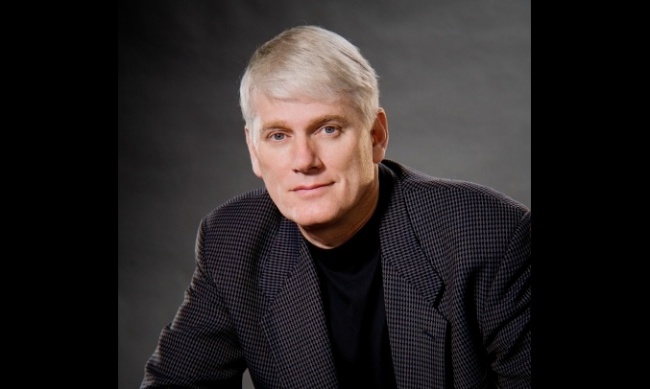
Dark Horse Today, the Exit Question, Comics in 30 Years
Posted by ICv2 on May 19, 2016 @ 4:54 am CT
MORE COMICS
'Legacy Edition' to Match Current Japanese Release
July 8, 2025
The three volumes in the slipcased boxed set will match the current Japanese edition.
Williams Out, Lunsford Back
July 8, 2025
Funko's board of directors has pulled the plug on the short tenure of CEO Cynthia Williams, replacing her with Michael Lunsford as interim CEO.
MORE NEWS
'Sanctuary of the Steelborn' and 'The Titan's Vigil'
July 8, 2025
Steamforged Games has placed Sanctuary of the Steelborn and The Titan's Vigil , two new Epic Encounters sets, onto preorder.
TCGplayer Top 25 Sealed Products Chart Analysis for June 2025
July 8, 2025
The sales of the Magic: The Gathering - Final Fantasy might have some clues to where the Spider-Man set is headed.



